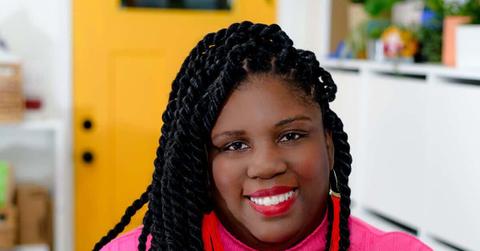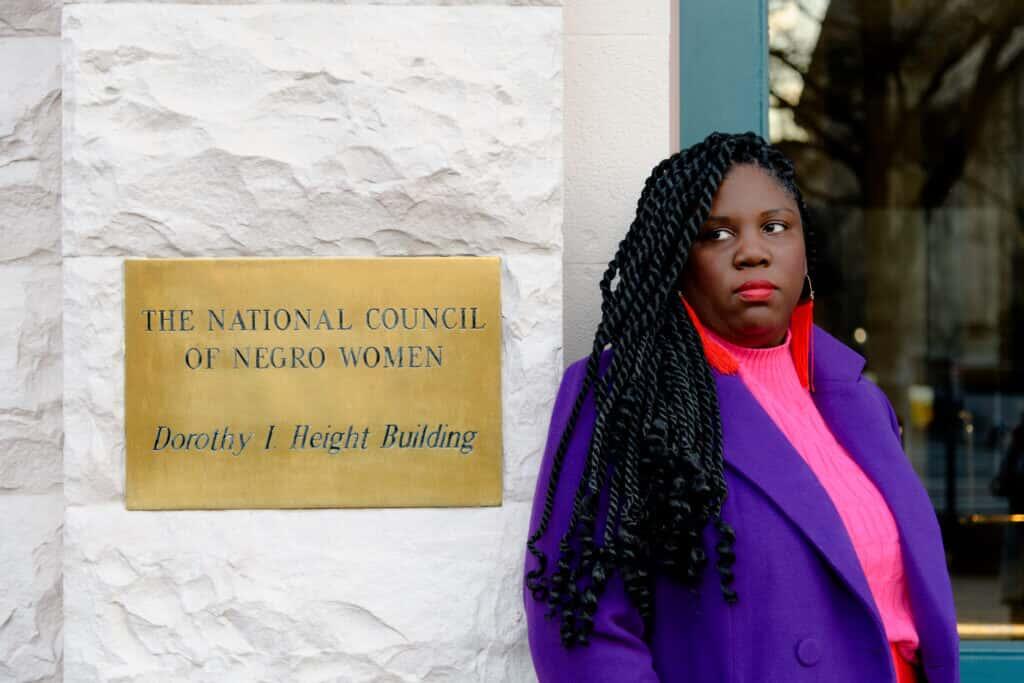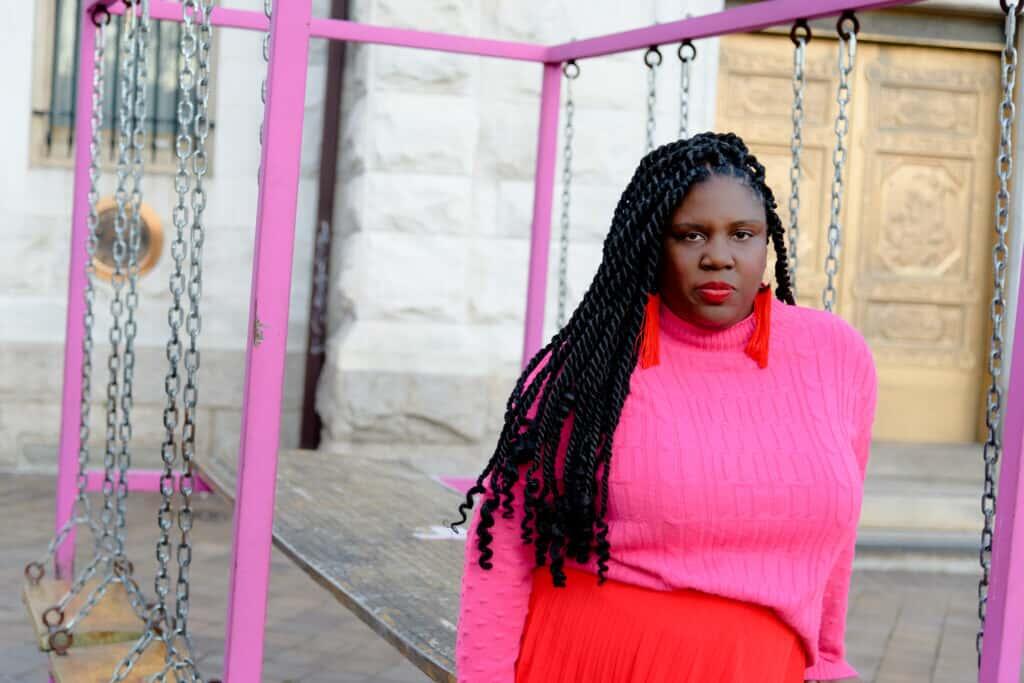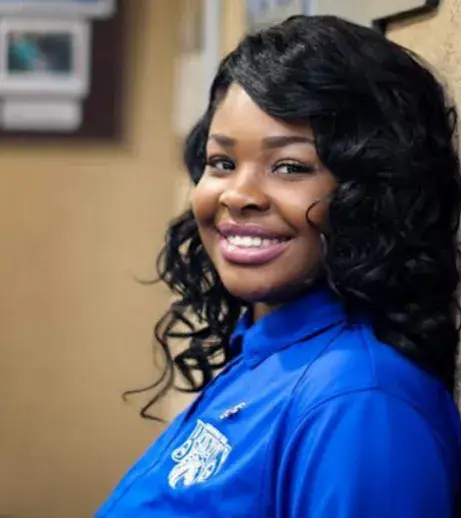Nourbese Flint On Why Reproductive Justice Is The American Dream

Growing up, Nourbese Flint, president of All* Above All and All* In Action Fund, was exposed to the reproductive health space by her mother and cousin, who ran a reproductive justice organization.
Since then, Nourbese has been guided by the activists in her family, which has led her from working with Black Women for Wellness to leading Black partnerships with Planned Parenthood, to now leading All* Above All, an abortion-forward reproductive justice organization dedicated to ensuring that all people, regardless of race, income, location, or identity, can make decisions about their reproductive health.
With reproductive justice on the line for all women, Her Agenda spoke with Nourbese about her path into the movement, what she hopes to pass on to the next generation, and how reproductive justice is part of the American Dream.

Her Agenda: Let’s start by telling me more about yourself, who you are, and how you became the president of All* Above All.
Nourbese Flint: I was born and raised in Los Angeles, California, in a family of activists. In my free time, I was always drawn to reproductive health. My mom runs a reproductive justice organization, as does my cousin. So when I graduated, I found myself working in a field that was near and dear to me: health.
I stayed in the work I grew up in, the work I believe in, and it has guided my path into the reproductive justice space. My journey began at Black Women for Wellness, a reproductive justice organization in Los Angeles. That led me to Planned Parenthood Federation, where I led partnerships with Black organizations and reproductive justice groups. From there, I realized I wanted to return to policy to bold, big-picture work, which brought me to All* Above All.
I’m also the mother of a rambunctious, always-moving four-year-old, and I now live in the D.C.-Maryland-Virginia area.
Her Agenda: Given the intensity of your work and the current moment, what helps you stay grounded?
Nourbese Flint: It’s really the people around me that keep me grounded. Like most people, I have a girlfriend chat where we bounce between politics, dating, food, and then back to politics. It’s always a healthy reminder of why I do this work.
I do it not only because it’s my passion and my heart’s work, but also for my friends, my family, and my community. When I feel tired or things start to feel a little hopeless, I return to community; that’s what grounds me. I also carry a profound sense of responsibility. My role is to run the baton a little further and hand it to the next generation, so they can carry it forward.
Her Agenda: What advice would you give to people doing this work who might be feeling hopeless? How do you think the community can show up for reproductive rights, especially Black women’s reproductive rights?
Nourbese Flint: For folks wanting to get in and stay in, surrounding yourself with good people, staying true to who you are, and maintaining integrity in your work is critical. That’s what keeps your compass pointed in the right direction.
When it comes to reproductive rights and what the community needs to do, I think we sometimes overcomplicate things. At its core, this work is about healthy relationships and being in community with each other. That means having real conversations with friends, loved ones, and family.
The most powerful thing we can do for reproductive and sexual health, particularly for Black women, is to have those deeper conversations and bring people in, not push them out.

Her Agenda: Where do you see reproductive justice heading, and where would you like to see it go? What’s All* Above All doing right now to help shift the narrative?
Nourbese Flint: We’re really focused on visioning work, which we see as the first step in any strategic plan. The first step for us is mapping out what reproductive justice really means: full autonomy over our bodies and the freedom to decide if, when, where, and with whom to have children. That includes pregnancy care, whether you carry to term or have an abortion, as well as raising a family, having access to childcare, and healthcare that lets people raise their families with dignity. Our work combines policy and culture. We push groundbreaking policies at the state and national level, while also shifting the cultural narrative, helping people see that reproductive healthcare is healthcare.
If we think of healthcare and economic justice as part of the American Dream, reproductive healthcare has to be part of that too.
Her Agenda: What have you learned working in an impact-driven career? How have you navigated the pressure that comes with that?
Nourbese Flint: Yeah, there are a couple of pieces. Integrity is incredibly important. It’s easy to get lost in power struggles, especially working in DC, where it feels significant. It’s crucial to maintain that rebel spirit, to stay authentic, and to remember why you’re here and the value you bring. Finally, finding joy in the work, both for yourself and as something you bring into it.
Her Agenda: What’s something that you wish you knew about working in the reproductive justice rights field before you started? And how has it helped you?
Nourbese Flint: I would say one piece I wish I’d known about is parenting. I had my child at 37, and the working world is not set up for parents. You have to be strategic about what you let go of to be the active mom you want to be; it’s an ongoing negotiation and struggle.






